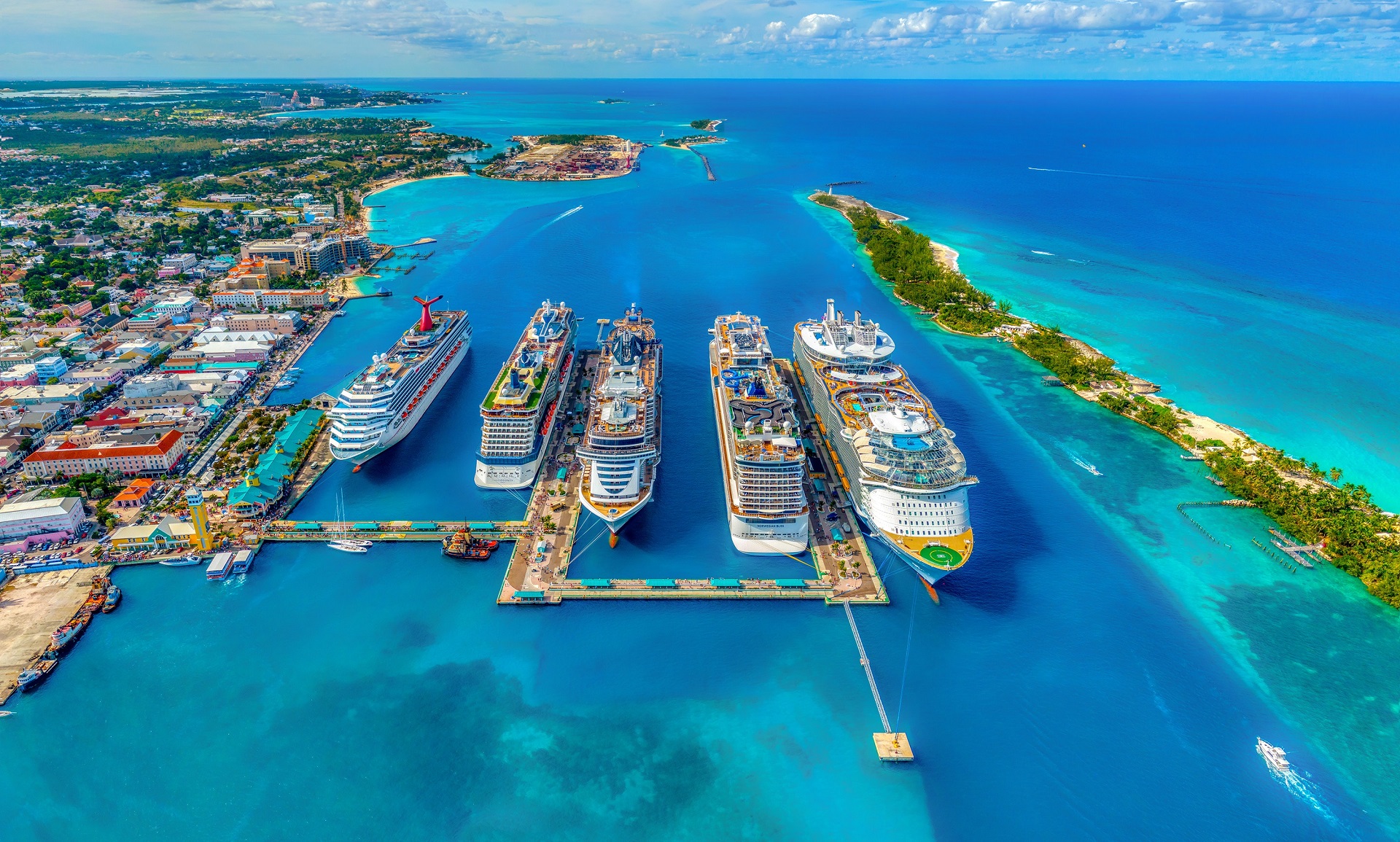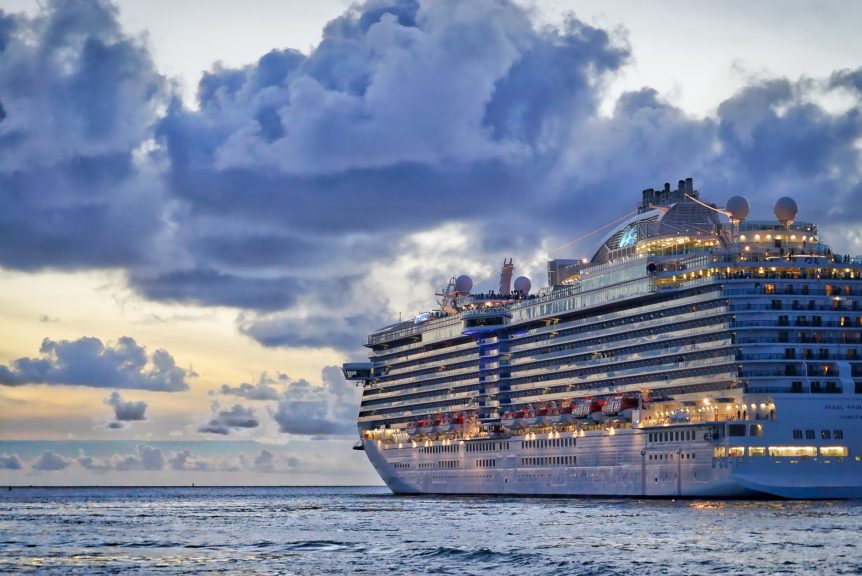Going on a cruise should be one of the happiest moments of your life. A cruise line can travel all across the globe; from the coldest climate in Alaska, all the way down to the warmest climate in the Caribbean. The last thing you expect to face on your cruise is an unexpected injury that you feel could have been avoided if a cruise line had been more attentive. In addition to injuries, your cruise line may also be liable for those automated solicitation calls you receive on your cell phone all throughout the day.
Whether you are facing an injury while on a cruise or an extreme amount of unsolicited free cruise robocalls, you may be entitled to file a cruise line lawsuit.
Coronavirus Cruise Ships
During the Coronavirus (COVID-19) pandemic, cruise lines operated for many months after the severity of the virus was known with the now-infamous Diamond Princess cruise ship (owned and operated by Princess Cruises, a subsidiary of Carnival Corporation).
But even after that ill-fated cruise, many other cruise lines continued to operate. Many customers requested to cancel their upcoming cruises but most cruise lines refused to refund their customers. As a result, many customers continued on their planned trips.
Further still, Carnival Cruise Lines launched campaigns to entice new customers to book trips by offering perks like free unlimited alcoholic beverages during the Coronavirus crisis.
Is there any legal merit?
If there’s any basis for legal merit, it is that Carnival and other cruise lines appeared to have withheld information from passengers in the hopes of profiting from sales aboard the cruise ships under a business-as-usual approach. Evidence suggests that cruise ships knew of passenger risks well before setting sail—and might even have been aware of on-board infections in the passenger pool—while downplaying such risks in public.
All of these actions are likely direct and indirect cause of numerous deaths and hundreds of permanent ailments.
Since the pandemic began, the cruise industry has shielded itself behind centuries-old, archaic laws, such as the “Death on the High Seas Act” to avoid accountability.
And while some information regarding the difficulty of such lawsuits may be correct (in part), cruise ships are in no way immune from such legal actions.
In fact, cruise lines appear to be preparing for lawsuits as vast portions of their marketing budgets have become dedicated to discouraging former passengers from filing lawsuits for their injuries or for injuries caused to a family member due to COVID-19.
COVID-19 Lawsuits
Even though the COVID-19 pandemic is far from resolved, lawsuits are already piling up against the major cruise lines.
If you’re seeking legal action for Coronavirus-related injuries that you sustained on a cruise, there are three important things that you need to know:
- There are deadlines to file a lawsuit. Whenever there are lawsuits that seek to address a personal injury, there are statutes of limitations, or eligibility timelines, within which your lawsuit must be filed. In this case, the statute of limitations is one (1) year from the date of your injury.
- You must file your lawsuit as an individual claim. Many news sites are incorrectly reporting these lawsuits as class action claims, when, in fact, they are not. Each case must be filed as an individual claim.
- Potential compensation for injuries will vary from case to case. Your damages may be limited to certain categories, but a good attorney who specializes in cruise ship injuries will be able to assist in maximizing your recovery.
Other Lawsuits Against Cruise Lines
Lawsuits filed against cruise lines are not a new thing. Cruise lines have faced a number of lawsuits based on negligence and misconduct. These lawsuits can range in severity.
Lawsuits against cruise lines can include mild accusations, such as suing the cruise line for injuries sustained during a fall. Other lawsuits are more severe.
In 2018, Carnival Cruise Lines allegedly held a passenger against his will after he suffered a heart attack. The man died from his injuries, which prompted the man’s family to file a wrongful death lawsuit against the cruise line.

Carnival Corporation was criminally convicted by federal prosecutors for illegally dumping oily waste into the oceans during 2016. Carnival had to pay $40 million in fines and damages after being criminally convicted. Carnival was also put on a five-year probation. In 2019, Carnival violated the probation by continuing to pollute the oceans and agreed to pay another $20 million in fines.
Class Action Lawsuits
In addition to criminal and civil lawsuits, Carnival Cruise Lines has also faced class-action lawsuits. In 2012, the Carnival Corporation was involved in a class-action lawsuit for making prerecorded telemarketing phone calls offering a free cruise with the Carnival Corporation. These pre-recorded telemarketing phone calls violated the TCPA (Telephone Consumer Protection Act).
Carnival Cruise Lawsuit Update
Claimants who had received a robocall between 2009 and 2014 had until May 31, 2018, to submit a claim in the class action lawsuit. The attorney for the class action lawsuit, Philip Charvat, created a Settlement Fund of $7,000,000 to $12,500,000. This means the Carnival Cruise class action lawsuit payout would be paid to all qualifying claimants. Each telemarketing phone call made by Resort Marketing Group (on behalf of Carnival Corporation) would pay a maximum of $300 per call. You could file a claim of up to three calls per telephone number to give you a maximum payout of $900.

As of August of 2018, more than 2.6 million people filed claims on these robocalls. This caused the maximum $900 payout to dwindle substantially. The attorney for the class action lawsuit requested telephone records from claimants proving that they had received these robocalls.
American Cruise Lines Lawsuit
Carnival Corporation is not the only cruise line that has faced a class-action lawsuit. In 2015, American Cruise Lines was hit with a class-action lawsuit for failing to pay its stewards minimum wage and overtime pay. The class-action lawsuit covered the time period between May 21, 2012, to January 9, 2016.

In this class action lawsuit, more than 1,000 stewards were expected to qualify. There were over 700 pages of documentation for the court to review. American Cruise Lines reached a $1 million class-action settlement in violation of the Fair Labor Standards Act (FLSA).
Jones Act
The Jones Act is also known as the Passenger Services Act. This act “prohibits Non-U.S. registered ships from embarking and debarking guests at two different U.S. Ports.” If a Non-U.S. registered ship has an itinerary that includes a distant foreign port, a ship can embark and debark guests at two different U.S. Ports.
If a guest insists on embarking or debarking the ship in a port that violates the Jones Act will face penalties and fines.
Jones Act Lawyer
Employees, stewards, or other cruise line staff who spend at least 30% of their time working on a vessel are protected under federal law known as the Jones Act. The Jones Act protects the rights of these seamen by having any medical bill paid by their employer if they have been hurt on the job.
To take advantage of these rights, a cruise line employee who has been injured on the job should obtain a Jones Act lawyer. A Jones Act lawyer specializes in maritime workers who have been injured on the job. These lawyers know the protection you are entitled to have through the Jones Act.
If you have been injured on the job, document the injury along with corresponding medical bills and submit them to your lawyer for review. Your lawyer will review the documents to guarantee that you receive the coverage and reimbursement you are due.
Conclusion
If you are planning on taking a cruise, carefully read over any agreement before you sign. A cruise line will make sure they protect themselves, so it is important to know what your options are if you were to sustain an injury during a cruise.
Injuries on a cruise may be self-inflicted, such as suffering from a fall. Other injuries can be at the hands of other passengers, such as a bottle or glass falling onto you from above. Food-born illnesses are also possible on the confines of a cruise ship. Knowing what risks you face while on a cruise will help you to know the preparations to take.
If you are an injured maritime employee, you are entitled to have your medical bills paid by your employer through the Jones Act. If your employer is not willing to cover your medical expenses, you may need to consult a Jones Act lawyer. A Jones Act lawyer will review your case and ensure your injuries are covered through the Jones Act.
Whether you are a passenger or an employee, you should not have to worry about injuries or illnesses while on a cruise ship.
If you need assistance, you can also chat now with a Laws101.com attorney, where you’ll be instantly connected to a lawyer who can give you legal guidance on your specific case or question.
